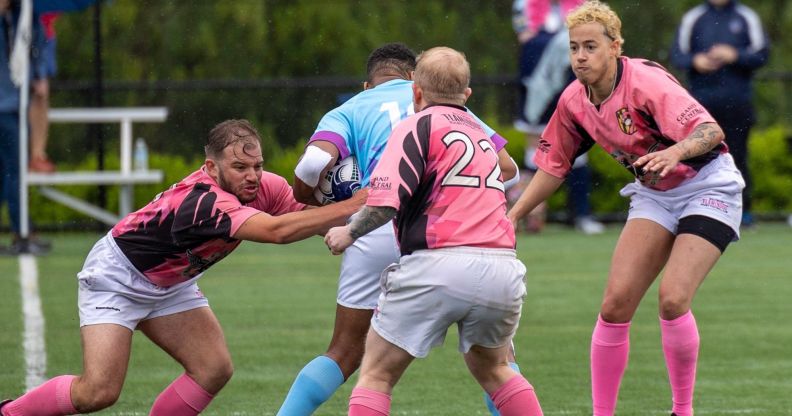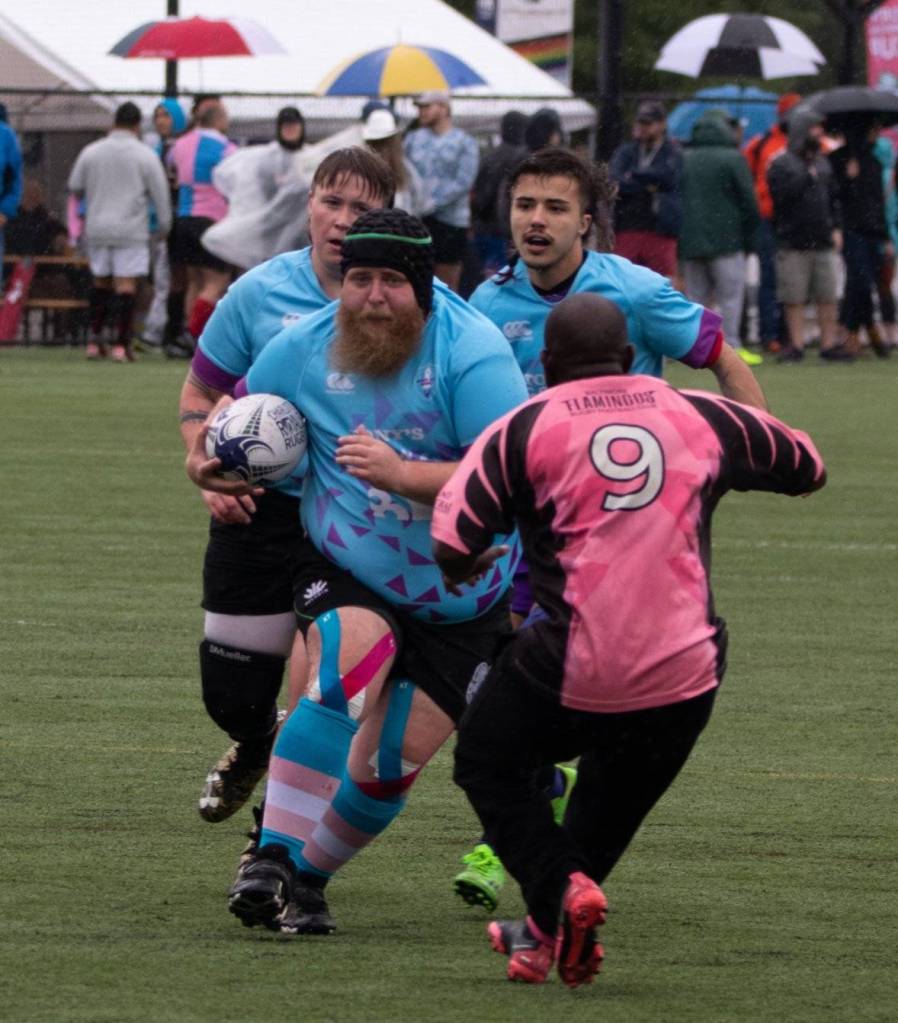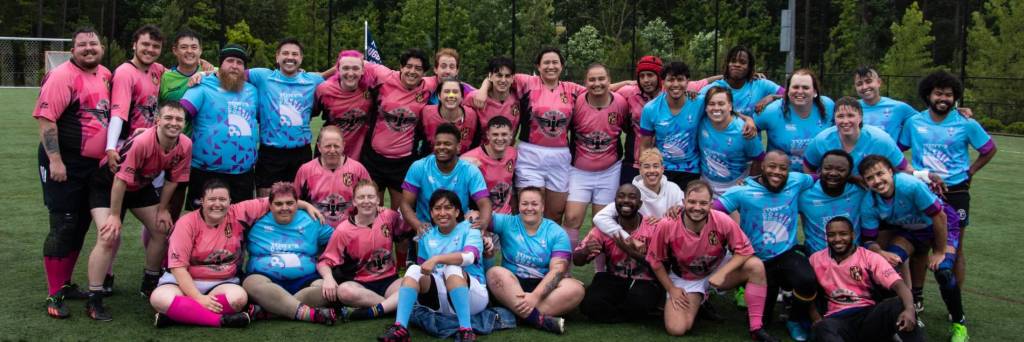Historic all-trans rugby match sends a ‘big f*** you’ to transphobes

Val Pizzo, who has been playing rugby for 15 years, says rugby culture is ‘so welcoming’ that it’s become a sport ‘trans people love to play’. (Steven Noll Photography)
As he prepared to take part in a historic all-trans rugby match, Atticus Martin felt like he was going to cry.
Martin was one of the 39 trans and non-binary players who took part in an all-trans match at the North American Rugby Cup, the first of its kind in the US, on 27 May in Charlotte, North Carolina.
The players, who came from over a dozen teams worldwide, took to the pitch wearing bright pink and blue jerseys in the colours of the trans flag, showing their joy and pride at being part of rugby’s trans community.
Hosted by the International Gay Rugby (IGR) association, the match was designed to promote trans inclusion in sports and battle against the surge in anti-trans legislation in the US.
Essentially, it was a “big F U to everybody who thinks that we shouldn’t exist,” Martin tells PinkNews.
“Out of all the sports I play – because I even play softball – rugby players have been the most supportive and like, ‘This is all f**ked up what they’re going to you guys and saying that you can’t play’,” Martin says.
Trans inclusion in sports has become a lightning rod issue worldwide. The International Swimming Federation (FINA) and rugby football unions in England, Ireland and Wales have restricted or outright banned trans people from participating, despite experts denouncing such restrictions.

It’s no coincidence that these bans come as transphobia is increasingly peddled by right-wing politicians and media outlets
“They want us to be down and out, basically,” Martin says. “But [we’re] just taking this moment to empower ourselves and show them like ‘You’re not winning this. We’re gonna continue to be who we are and how we want to be’.”
Val Pizzo started playing rugby when he was in high school, around the time that he came out as trans.
He’d hated sports growing up, but a teacher convinced him to give it a go.
“At the time, I was kind of in the process of coming out as trans, and I just thought that rugby sounded really masculine despite the fact that I’d be joining a girls team in high school,” Pizzo says.
“I was like, ‘Wow, this is definitely something [to] show off how tough I am’, having never played any sport.”
Pizzo joined a “rookie day” and recalls: “We did this little tackling drill, they had me tackle somebody and everybody was like, ‘Whoa, you’re a natural’. They made me feel really good from the start.”
Eventually, Pizzo came out as trans to that team, who were “all very supportive”, but he wasn’t allowed to play with the boys team.

When he started college, he didn’t tell anyone he was trans as a result, and joined a men’s team.
Hiding his truth was “stressful”, but it was the only way Pizzo thought he’d be able to play the sport he loved without having to jump through “policy hoops” or being barred from playing alongside other men.
Now, Pizzo is president of Baltimore Flamingos RFC and an International Gay Rugby representative. Being part of a queer team means he can be himself, and he’s taken pride in creating a space for more trans people to bring their truth to the pitch.
“Most of us, at this point, have found some other trans people playing rugby before – we’ve played with other trans people,” he says.
“And it’s a moment of: we’ve both made it this far and no one’s pushed us out yet, because there’s a lot of teams that – depending on your area – that aren’t so accommodating even when the policy is or vice versa.”
He says that many people “have this misconception” about trans-exclusionary sports policies, “that these policies aren’t really going to affect anyone”.
“‘What trans people are playing rugby anyway? It’s such a brutal sport’ blah, blah, blah, blah, blah,” he says.
“We play rugby because there are so many teams that are so welcoming, and the culture of rugby is so welcoming, generally. It’s a sport that trans people love to play.
“And to see that we have skills in rugby, we’re good at it, we’re passionate about it.”
How did this story make you feel?

